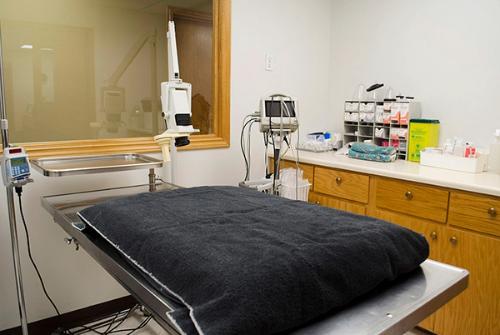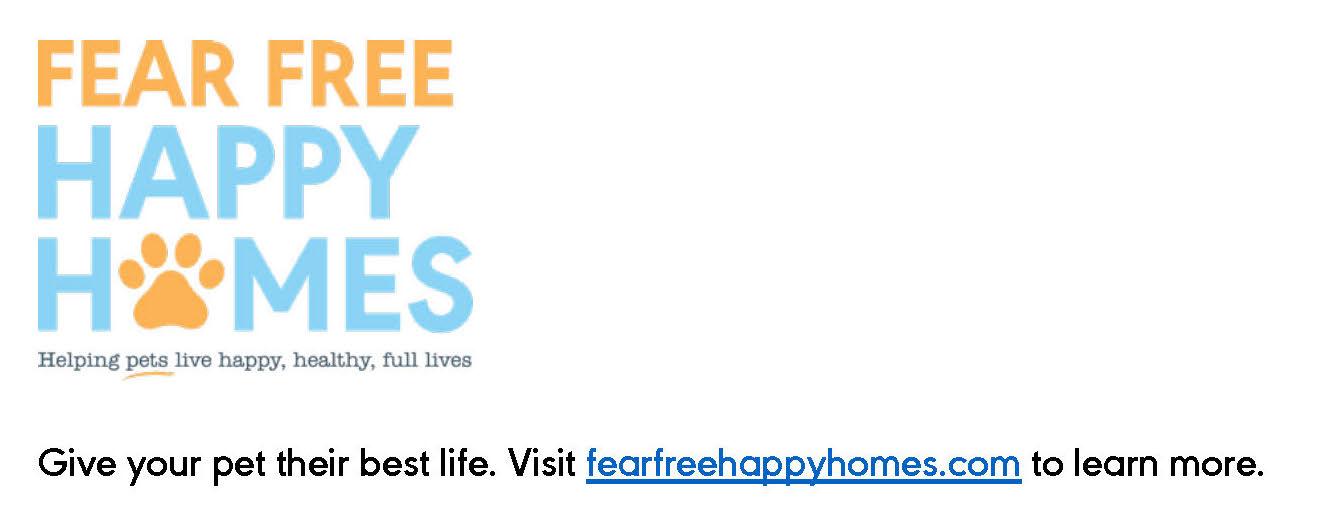

Baby prevention! There are many reasons why spaying or neutering a pet is generally recommended. Not only does it help reduce the risk of an unplanned litter but for most pets there are health benefits as well! For example, spaying a female eliminates the possibility of uterine cancers, ovarian cancer, pyometra (a life-threatening infection of the uterus) and greatly reduces the chance of mammary cancer. Neutering a male eliminates the risk of testicular cancer, greatly reduces the risk of prostate diseases, helps prevent your companion from roaming (male dogs can smell a female in heat for up to a kilometer away!), and reduces the risk of fighting. And for the kitties it eliminates the tom cat urine smell and greatly reduces spraying.
However, the recommendations for if and when to spay or neuter your puppy have changed in recent years. There are certain breeds (like the Golden Retriever) that need to keep their reproductive hormones for life. And most male dogs should be allowed to go through puberty before neutering to ensure optimum bone and muscle growth. It has become a complex decision, and Kincardine Veterinary Services is here to help guide you through that decision making.
Once the decision has been made, Kincardine Veterinary Services’ exceptional Caring First, Fear Free patient care continues.
- The night before any surgical procedure we pretreat all patients with an antiemetic to provide 24 hours of nausea prevention. Waking up from anesthesia feeling queasy is no fun and prevents rapid return to eating which delays recovery.
- Oral anxiety-reducing medications are given prior to your pet leaving home so that the hospital stay is as relaxed and happy as we can make it. It can be a strange and scary experience for your fur baby to be away from their home and their people. We can avoid that.
- Kincardine Veterinary Services provides excellent pain management for our patients.
- We start with oral pain medications before your pet even leaves home.
- While at the clinic we provide multimodal pain management to achieve patient comfort.
- Long acting nerve blocks are used at the incision site prior to the surgery to prevent any pain sensation.
- And several post op medications will be sent home to provide 7 days of pain management.
- All pets receive post op laser therapy or “photobiomodulation.” This targets the damaged cells at the incision to help them regenerate and heal faster while also providing local analgesia.
- Lastly, cryotherapy in the form of a special ice pack is performed to reduce swelling and pain on recovery.
- If your puppy is a larger breed, you will have the option of having a radiograph (x-ray) to assess for hip dysplasia. Early detection and intervention extends joint health for these patients. Unfortunately, few clinics offer this timely additional diagnostic testing. We do. Kincardine Veterinary Services takes every opportunity available to improve the quality of the entire life for our patients.
- A dental exam will be performed to identify any missing teeth or crowding issues. Dental radiographs while your pet is already anesthetized can identify impacted, unerupted teeth that will require extraction. Or will prove the teeth to be truly missing so we don’t have to worry about them in the future. This is rarely performed in other clinics.
- Best Medicine practices performed at Kincardine Veterinary Services reduces anesthesia risk as much as possible.
- All of our patients have pre-anesthesia bloodwork performed prior to their procedure. This bloodwork screens for organ dysfunction, anemia, and for unknown infections to ensure that your pet will tolerate the anesthetic drugs. This also helps us to customize pain medications for your pet.
- All of our patients have a physical exam the morning of their procedure. Heart and lung function will be assessed prior to any sedation being given. If we have any doubts about how your pet is going to respond or has responded, then we will contact you and discuss the concerns and possible solutions. Further assessment may be needed prior to anesthesia being performed and the procedure delayed until we feel it is safe, regardless of our schedule. We are not a corporate owned clinic so do not have any pressure to meet any “production numbers”.
- All our patients have IV fluids before, during and after anesthesia, allowing for emergency drug administration if needed, blood pressure management throughout, optimized distribution and clearance of drugs from the body, and rapid anesthetic recovery to get your baby home as quickly as possible.
- All of our surgical patients are continuously monitored by a registered veterinary technician (RVT) assigned to their case throughout their entire procedure. This allows even small changes in critical parameters such as blood oxygen (SpO2), expired carbon dioxide (ETCO2), respiratory rate, blood pressure, heart rate, ECG, and body temperature to be addressed immediately.
- Lastly, our excellent multimodal pain management allows us to reduce anesthetic needs to a minimum. This makes the procedure safer for your pet as they are just barely asleep.
- Patient care is the priority for our entire team. Our kennel staff take great pride in providing your pet with all the TLC they can offer, using Adaptil or Feliway pheromones on soft, insulating bedding to ease any stress and anxiety your pet may experience while away from home. All our patients are kept as comfortably warm as possible with a doggy coat on addmission or warm packs placed in kitty bedding for coziness. After the procedure, our RVTs will set up a webcam to monitor your pet tucked up in their comfortable bed. The lights are kept dim so your pet may remain sleeping if they wish. When more awake, the dogs are walked to relieve their bladders after IV fluid therapy. Kitty litter boxes are closely monitored to maintain cleanliness and comfort. And everyone is offered food once sufficiently recovered. If your pet is on a special diet we would love for you to bring some of it with you at your pet’s admission appointment.
- We will call you as soon as your baby is in recovery, providing reassurance to relieve any anxiety you may feel. We want this to be Fear Free for you as well.
- Your pet can be discharged as soon as they have recovered and are able to go home safely later that same day, whenever it is convenient for you. If your schedule allows, they can go straight home for some continued tender loving care as soon as they are back on their feet again.
Frequently Asked Questions:
What do I need to do before my pet’s surgery? We like to perform a ‘pre-operative’ appointment a few weeks before the procedure. This allows us to:
- attempt to collect our pre-anesthesia blood sample for testing, Sometimes this doesn’t happen and we will then aim to collect the blood sample on the day of the procedure. Even if we cannot collect the blood sample this helps us to gage how anxious your pet might be coming into the clinic for the procedure itself. We can then make plans for any additional anxiety reduction needs your furry friend may require.
- get an up to date weight and history for your pet, in case anything has changed.
- dispense our pre-operative medications for nausea and anxiety management, adjusted based on the response during this appointment.
- make sure that you understand the fasting requirements on the morning of the procedure and have a plan to ensure everyone in the household knows not to feed your pet that morning.
- go over the treatment plan in detail for the day of the procedure to ensure you know what specific care will be provided for your pet on that day and how much it is expected to cost. You will have received this treatment plan prior to booking, but we will go over it again with you at this appointment.
- discuss post op care so you understand what to do after the procedure. If any extractions are likely to occur, then a soft diet must be provided post op and this will need to be transitioned onto prior to the procedure.
- answer any questions you may have about the procedure or your pet.
Will my pet be painful after the procedure? Kincardine Veterinary Services provides excellent post op pain management for our patients. The biggest complaint from clients is that their pet feels so good it is hard to keep them quiet. And we have ways of managing this too.
Does my pet receive post op care? Post-procedure checkups are important after any anesthesia or surgery as they allow us to ensure your pet has recovered appropriately. We will contact you the day after the procedure to ensure your first night has gone well. An in person recheck in 7-14 days will also be performed. During that time, if you have any concerns for your pet’s recovery following their procedure, examinations are encouraged and performed at no charge. Clients are pretty surprised at how comfortable their pet is coming back to the clinic after their procedure. Great care shows! And of course our staff will remain available to you via email, text, or by phone for the following weeks should you have any concerns or questions about how your pet is doing. A safe and happy recovery is critical.
How long will my pet be in hospital? Spay and neuter procedures are a day surgery. We admit our surgical patients at 8:40 am and they can be discharged once they have recovered from their anesthesia and are able to safely go home. Depending on your schedule and availability, they could go straight home for some continued TLC.
Still have more questions? Feel free to request to speak to our staff members we are more than happy to help or contact us by phone or email at info@kinvet.com or 519- 396-2071



